Interview with an Artist: Ten Years by the Train Tracks
Smell of dirt. Metaphorical straight-jackets. Dream vapour. An interview with an Australian Poet.
"And above all, watch with glittering eyes the whole world around you because the greatest secrets are always hidden in the most unlikely places. Those who don't believe in magic will never find it." - Roald Dahl
Darby Hudson and I crossed paths many moons ago, back when the world was locked down and people roamed the streets with sad eyes behind blue face masks. Even though we never actually met in person while we occupied the same city, we often stumbled upon each other's fingerprints, enough to feel like we knew one another. When I was living in Melbourne, posting my Dear Stranger letters, I’d frequently stumble across Darby’s poetry squares taped to trees, walls, and traffic poles. Finding them used to feel like discovering little nibbles of magic.
After I left Melbourne, life pulled us in different directions, and we drifted out of touch. Recently, though, by pure chance, I came across his podcast, five years later. Something about it drew me back to him, like it had been waiting for me to find it at the right time. To be honest, I was skirting the edge of depression when I found it. I’d just wrapped my last job of the year in the film industry, and I was feeling lost, still stuck in sixth gear, the relentless pace I’d been moving at for work. I didn’t know how to downshift, how to notice magic anymore.
But listening to Darby’s words helped me slow down. With each episode, the wheels in my head started turning at a gentler rhythm. The week I found his podcast I decided to take long walks, hours at a time, posting my letters, letting his podcast be my guide. It was like reconnecting with a piece of Melbourne I’d left behind, but also rediscovering a part of myself I thought I’d lost.
I hope his words inspires you just as much they inspire me.
Jay asking Darby : Hey Darby, I want to ask you something I like to ask most of my guests: do you have a home? Not necessarily a physical house, but a place, or even a state of mind, that feels like a refuge when life gets too loud?
Also, since Melbourne seems to be a big part of your life, do you ever feel the itch to leave, to travel beyond its borders? Or have you found a kind of peace within the rhythm of the city? Maybe staying in one place for so long lets you notice patterns and connections that wouldn’t be as obvious if you were always on the move. Do you think being rooted in one location allows your mind to wander further?
DARBY - When I worked jobs, my home was really the job’s rest and recovery rental centre that I paid for with work’s money. It wasn’t true home. So it’s weird you can’t claim rent on tax for a place that’s basically in service to a nine to five job. So I re-geared and reverse-engineered this ridiculous situation, bought energy from nowhere with beers after work and wrote at night, and made work pay for my hangover. Wrote my way out of that dumb loop. Because really, a job interview is where you have to prove you’re worthy of staying alive in this world by pretending that you’re dead. So after work, I’d find a place between ‘home’ and work, that was out of that ridiculous cycle, by the train tracks, where I sat for ten years at night in the bushes with some beers.
I made life my slave, not the other way around, and found escape velocity out of that ridiculous and endless loop. So ‘true home’ for me was by the train tracks for ten years at night - a spiritual home maybe. Not my ‘life storage unit’ rental of bed, desk, couch, fridge, toilet with roof. Home was outside the loop of autopilot, watching life from the sidelines - commuters flung past in train carriages at night lighting up the place like industrial fireworks, while I sat on the embankment in the dark, sitting in the dirt, and wrote - re-piecing together a life with writing that was falsely sold to me. And I loved the smell of dirt by the train tracks, in winter, summer, all the seasons. Dirt has anti-anxiety properties I’ve come to learn, which always made sense. One day we’ll be covered in it and be stress free for an eternity.
My dad has a cabin in the country which has been in the family since the 1950s which I’m lucky to get to from time to time, but not enough. I’m not a fan of Melbourne, its culture, the people who run it. The younger generations have cops in their heads. Correct opinions. Authorised laughter. The foundations of existence is built on laughter, so you can feel the infrastructure of the universe crumbling sometimes. And you can feel how the jail walls of thought extend to the real world. Sometimes I feel like I’m at an outpost, so I use this energy to bounce off. The world feels high on intelligence and zero wisdom. And intelligent people are some of the dumbest people I know or heard. I’m more cynical in the city and feel more wonder in the country. But these times have demanded a certain cynicism, and need questioning. I’ll return to the magic soon.
Jay asking Darby - Lets talk about writing. “Do you like writing?” Or do you feel like it’s a curse you picked up somewhere - the need to write? I remember you telling me how you find writing a waste of life, what do you think would happen if you just stopped writing tomorrow?
DARBY - Writing is a junkie-esque thing. I’m a greedy meaning making machine. But I like how the confused mess of my head can have some sort of temporary order by writing it down. Of all the ways I can waste life, writing is my favourite. If I stopped writing and creating tomorrow I’d feel a bit insane. I once practised Elkhart Tolles sitting meditations, visually reflecting on small detail, a few times a day, like a blade of grass, REALLY seeing it, and I felt the happiest I’d ever felt. Maybe more at peace than happy. And during these six months I didn’t feel the need to write. I’d lost the urge. I was fine with the world. I didn’t need to keep struggling and wriggling free. I was floating. So perhaps writing always needs some kind of obstacle or difficulty. So, if I’m writing, I’m not feeling at peace. And I’m writing all the time.
Perhaps some part of me doesn’t want to feel at peace, because there’s a fantastic connection gained in sharing struggles from a lone person to another lone person - not group to group. I wonder about that sometimes.
You often talk about keeping the child inside you alive. Across so many of your poems and podcast episodes, there’s this recurring thread, the importance of staying connected to your younger self. Do you think your ability to find magic in the most mundane things comes from this? From clinging to that child inside? And if so, how do you keep that part of yourself alive?
DARBY - I was forced to be an adult and parent at the age of 5 and onwards, so I was very serious. So I needed a break and developed a vivid imagination as a way out which isn’t a unique story for many writers and artists. I don’t regret my childhood. I wouldn’t be doing what I do now without it. I’d be living a very different life. We all have some strange spirit within us that gets coffined-in by our adult selves. There’s great expectation, and peer pressure to wear that coffin as quickly as you can. I feel like I went to my jobs in metaphorical pyjamas while people around me wore suits. Gotta keep those pyjamas on. When I wake, I’m closest to my child self. Especially those first ten minutes. So I love writing while there’s still childlike dream vapour wafting into my writing.
If a day is a life, we wake as children, and become more cynical and ‘old’ as the day wears on. So my favourite writing now is to write the most cynical jaded shit late at night – just a single sentence, then play with that same sentence with wonder and joy as my ‘child self’ first thing in the morning. Some of my best writing has come from this.
If you were to be remembered after you’re dead, what would you like people to remember you by? Or do you even care? Do you create art to leave a legacy, or do you create art to breathe in this world?
DARBY - Part of me wants to say I’d care. But I truly don’t. Everything has already been said and done and I’m yet another dickhead writing the same old truths, updated for the modern times. That’s the job of the artist, refresh old truths. We all have our turn, then gone and forgotten forever. What a relief to be forgotten. Free from the memory machines of humans, removed from a bad story, paid to endure it with beautiful sunsets and sunrises. Removed from the story of endless wars, the sickness of humanity and our polite murders. Our culture is so dumb we’re now cancelling the dead.
Anyway, sometimes I’ll walk through a space and feel good for no reason at all, without plans or expectation. I like to think this unexplained happiness comes from someone planting a smile in that same space lifetimes ago, and I’m walking through the energy of it. And perhaps that’s where unexplained happiness comes from? Maybe I’ll leave behind a few unmarked happinesses by the train tracks and in the Melbourne cemetery garden?
Do you believe travelling is a necessary aspect to writing? You talk about walking through Melbourne often, sitting by the train tracks, meditating in the graveyard, Do you believe the act of exploring a city or a place outside the boundaries of your home is important to your thoughts. Or do you believe that you can learn how to write by sitting in one place long enough?
DARBY - I think we plant thoughts wherever we go. I can walk back through the same geographical spot years later, and the thought that I had years before will come rushing into me up from the ground. If we plant too many thoughts in one place, it can muddy the colours, and the mulch heap of thoughts no longer has anymore to give. Need to turn the soil sometimes. It’s perhaps why I find some of my best ideas come when I’m moving: walking or driving. I wrote for years outside, the Melbourne Cemetery gardens. I love the cemetery as it keeps people out. Beautiful places usually attract too many people. I’ve been visiting the same garden since 1999. When I was in a corporate job I hated, I’d leave halfway through the day, buy a six pack of beers and go write in the cemetery - still in a suit, like I was a lost member of a funeral. But sitting in nature makes me feel good. The sky above. Trees. Birds. No people. Most of my recent ‘success’ or finding an audience after having zero audience for 30 years has come from sitting in the same place for three years straight at a kitchen table, writing sober. Which I never thought I could do.
On the recent ‘success’ or finding an audience: making ideas for 30 years without an audience - but purely for self entertainment and self medicating - was a humbling apprenticeship. You have to write without an audience, I think, for a long while (well for me it was useful, whether I liked it or not). 20 year old me was impatient. I had to grow into my ‘voice’ which wasn’t quite comedy, nor ‘proper poetry’. Humour is an easy way into writing and ideas when one is younger - most comedy is written by the young. And comedy moves in fashions. But the truth that good comedy is based on is timeless. Morality is fast fashion truth, imposter truth, that’s where most bullshit writing comes from you’ll find in inner city independent bookstores near universities.
Anyway, comedy was where I started. But eventually in my 30s, I found it didn’t scratch the itch of life-ache. Now into my late 40s, I’ve unconsciously blended all the styles I’ve loved: comedy, essay, poetry. I had to grow into my ‘voice’. When I was 20, a university lecturer once called my essay ‘pseudo philosophical waffle’ - and I’m still writing it, but now with 50 years of life to blow into it. The shit I was writing 20, or even 10 years ago, was probably beyond me - I was always writing these earnest, observed wisdoms from my own life - which lacked a certain power when I was younger. But as I got older, I no longer felt certain things to be true, but knew them to be true. You get older and recognise the same old patterns, the same old things … so a conviction crept into my words. I no longer had to question what I was saying. That said, of course the best stuff happens when I don’t know what the fuck I’m doing or where it’s going. It’s always a balance of things. So, at nearly 50, that same voice, ‘pseudo philosophical waffle’, now suits me. Life just said to me decades ago ‘you’re not ready, and you’re gonna have to do this for a long time’. And so I did it for a stupidly long time.
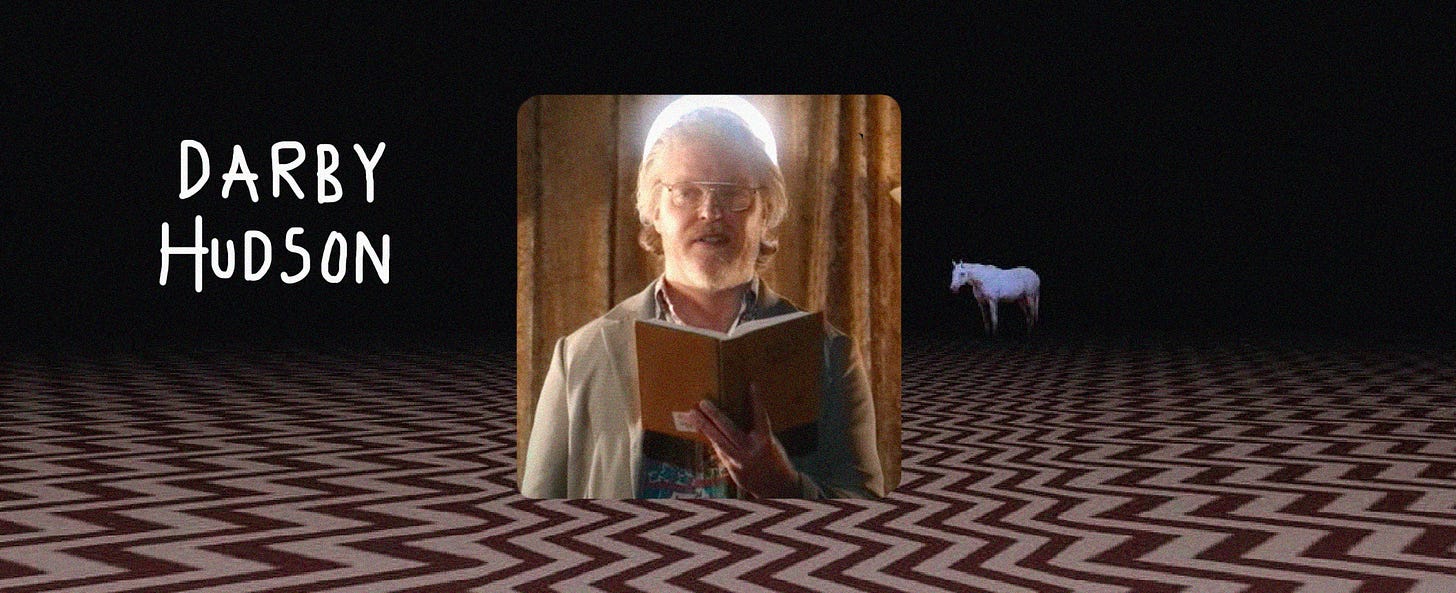
Thank you for taking the time to sit with us and talk about life, literature, and skin suit navigation methods. This conversation is one of many episodes about travel, philosophy, and whatever lives in-between those two worlds. If you would like to join me for the next conversation, feel free to subscribe, and if you want to follow our personal adventures around the world, you can find Darby and me on Instagram.




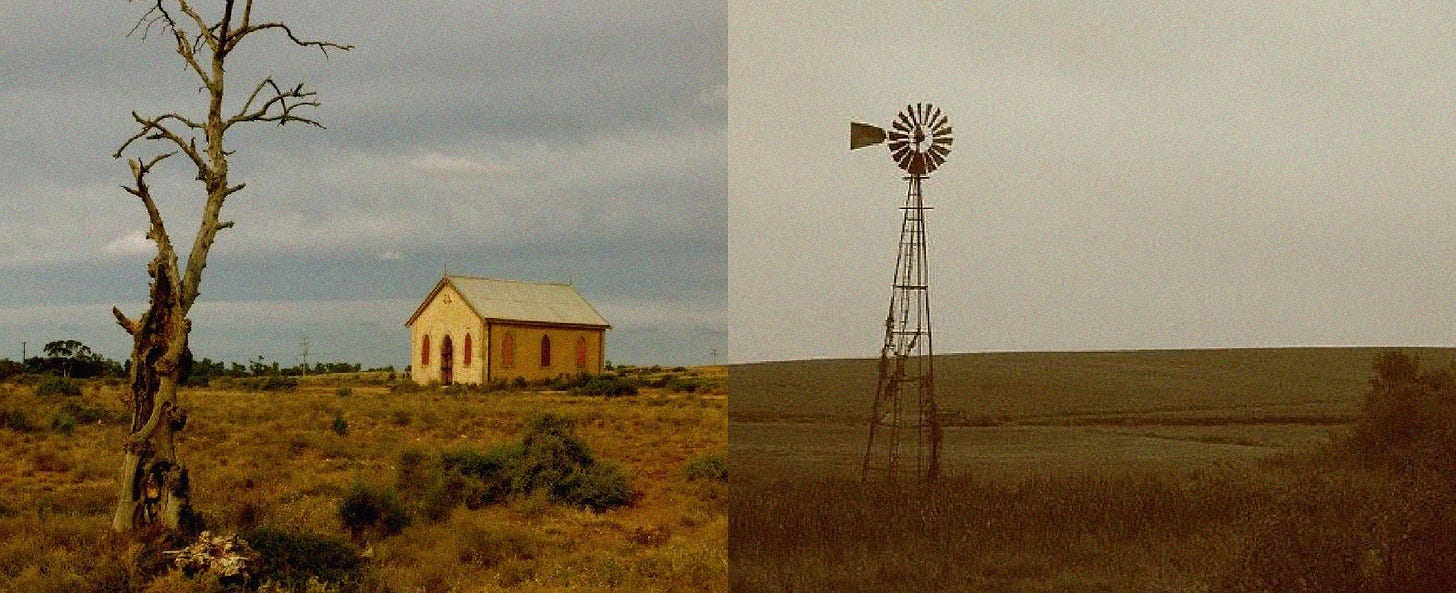
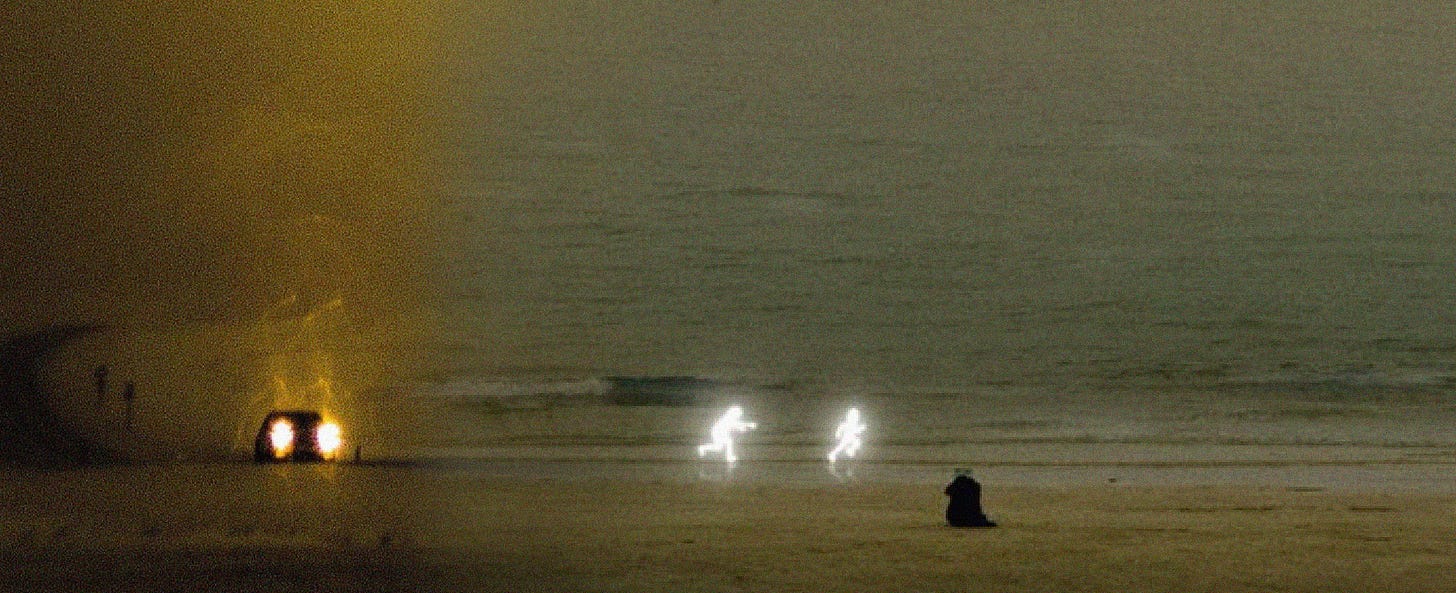
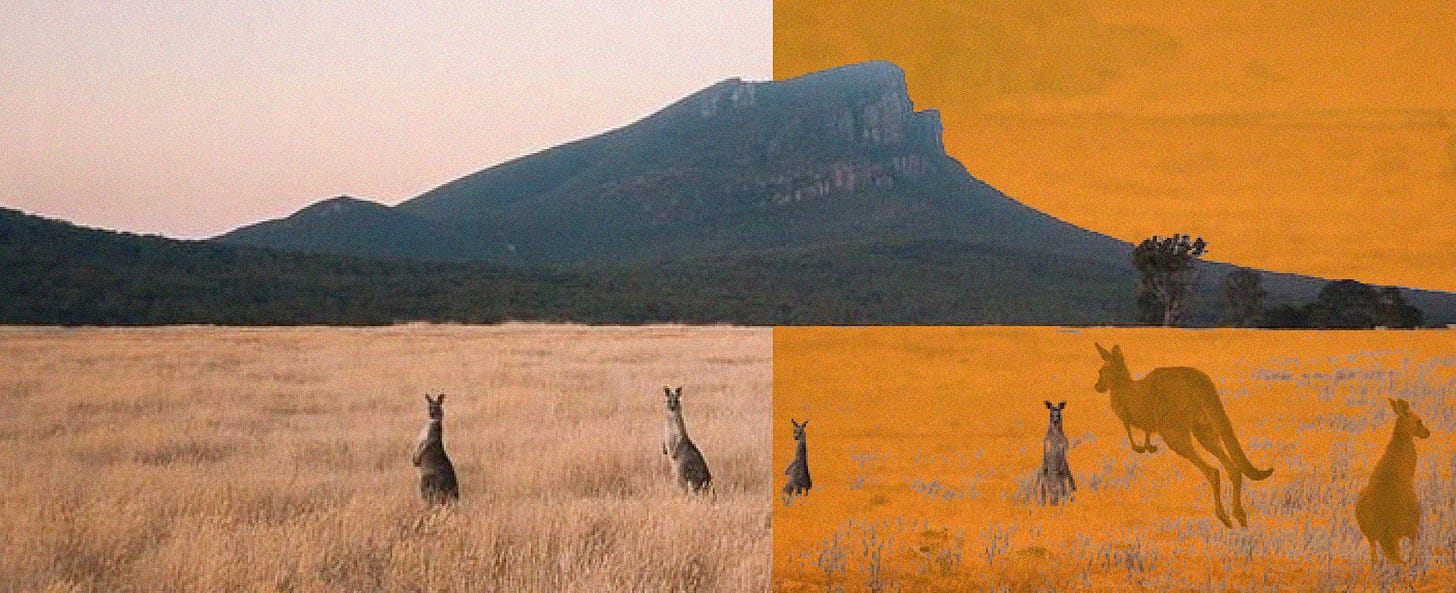
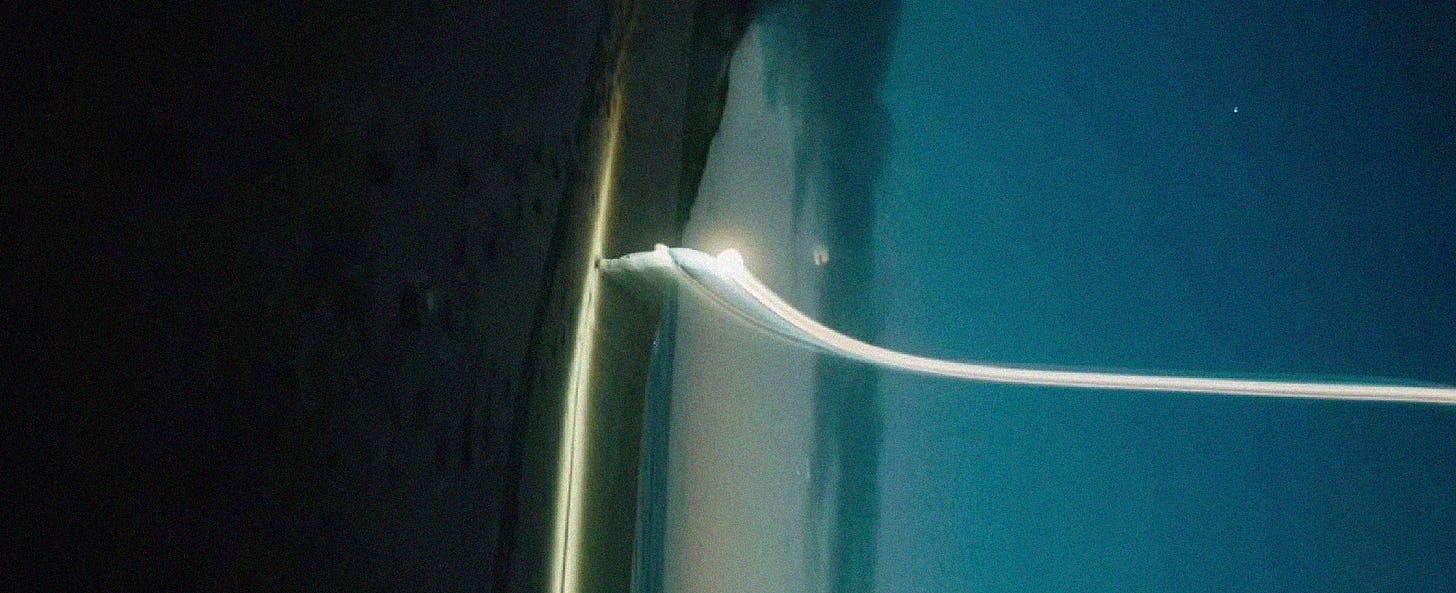
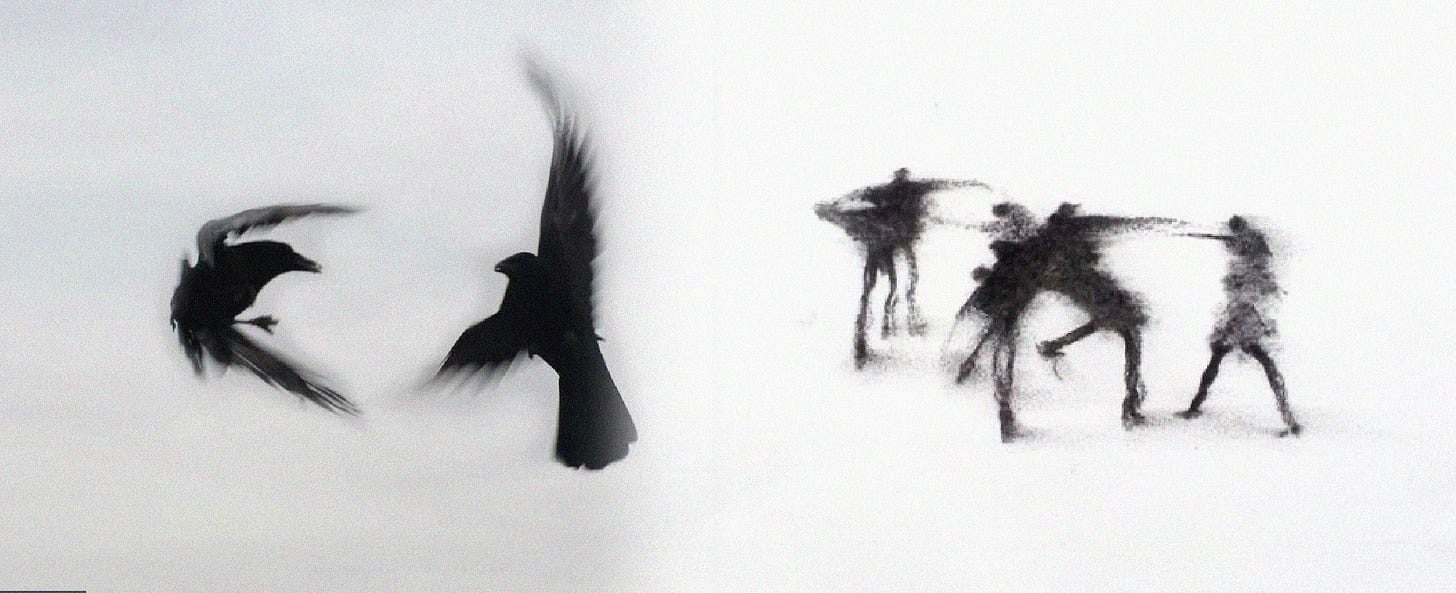
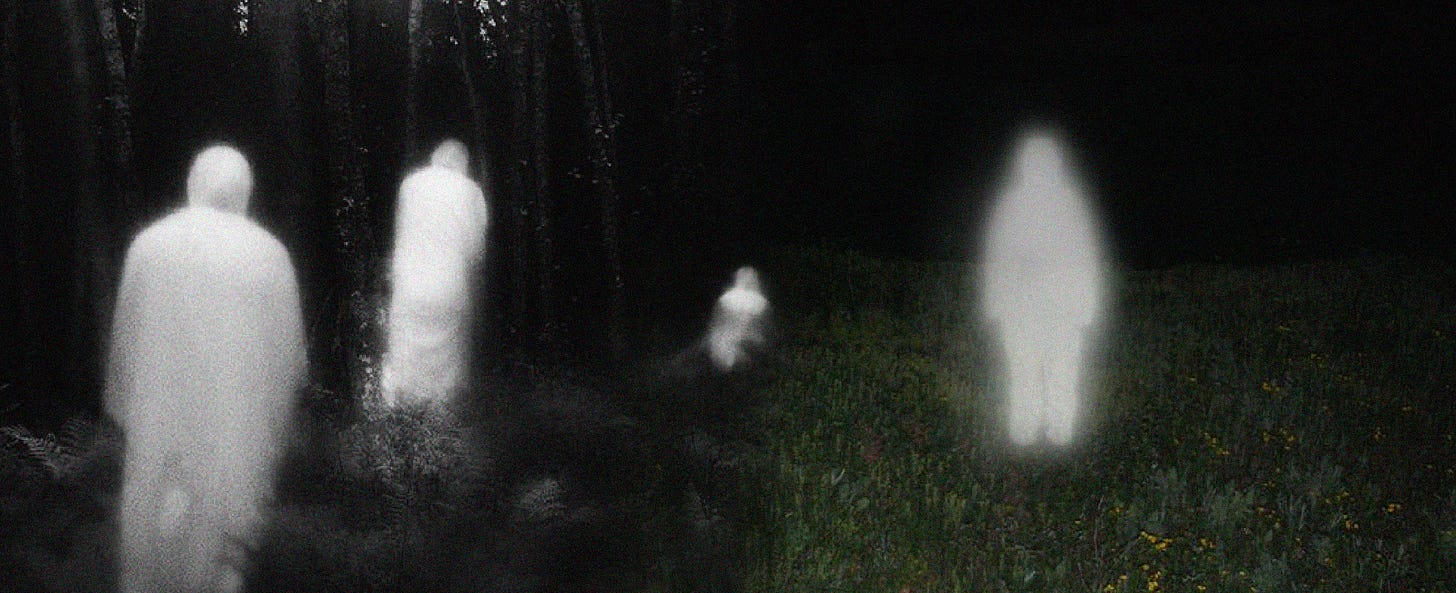
This was such a nice interview (and very good questions too, those one can learn from in so many ways!). But I liked the interplay with the images the most :D They're so unreal and cool!! Keep on writing and exploring, I'll stay tuned for the next conversation :)